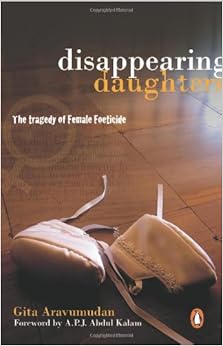Rebirth by Jahnavi Barua was shortlisted for the Man Booker 2011, and this on the cover of the book, alongside the woman on the cover, drew me to go ahead and pick up this one.
Every woman who has been pregnant will say that during those months, you fret and worry about how what you are doing affects the small life within, and how you would like to do the very best in your ability to ensure that life is unharmed in every which way. This story revolves around a woman, who is pregnant after many years and trying. And after all these years, her husband chooses to leave her, because of not having a child, or because of the 7 year itch, it is unknown. But he does come bounding back on knowing about the child.
And does a child set everything straight?
Do the mistakes made get washed away with the arrival of a child?
Or is it that what is expected for the want of a family for the child?
It is a book which flows so beautifully, the prose keeps you engrossed to the extend that you are transported to the Brahmaputra in Assam, and the fountain in the park at Richmond Town, Bangalore. The imagery which the author portrays is vivid and most importantly, it reached me. There are some detailed accounts of North east cultures/ rituals / and lifestyle. It is a region of India which holds lot of surprises and secrets. Many would say there is so much about every region which might be new, but there is really something about the North east and its limited connectivity, which only adds to the charm which is otherwise too, immense.
The book moves across the 9 months the woman interacts, cares and changes herself to her changed life, all in anticipation of her child. It is a very short read, but it leaves you with a calm and peaceful feeling, though it does not really close the plot or give too many answers.
Every woman who has been pregnant will say that during those months, you fret and worry about how what you are doing affects the small life within, and how you would like to do the very best in your ability to ensure that life is unharmed in every which way. This story revolves around a woman, who is pregnant after many years and trying. And after all these years, her husband chooses to leave her, because of not having a child, or because of the 7 year itch, it is unknown. But he does come bounding back on knowing about the child.
And does a child set everything straight?
Do the mistakes made get washed away with the arrival of a child?
Or is it that what is expected for the want of a family for the child?
It is a book which flows so beautifully, the prose keeps you engrossed to the extend that you are transported to the Brahmaputra in Assam, and the fountain in the park at Richmond Town, Bangalore. The imagery which the author portrays is vivid and most importantly, it reached me. There are some detailed accounts of North east cultures/ rituals / and lifestyle. It is a region of India which holds lot of surprises and secrets. Many would say there is so much about every region which might be new, but there is really something about the North east and its limited connectivity, which only adds to the charm which is otherwise too, immense.
The book moves across the 9 months the woman interacts, cares and changes herself to her changed life, all in anticipation of her child. It is a very short read, but it leaves you with a calm and peaceful feeling, though it does not really close the plot or give too many answers.

